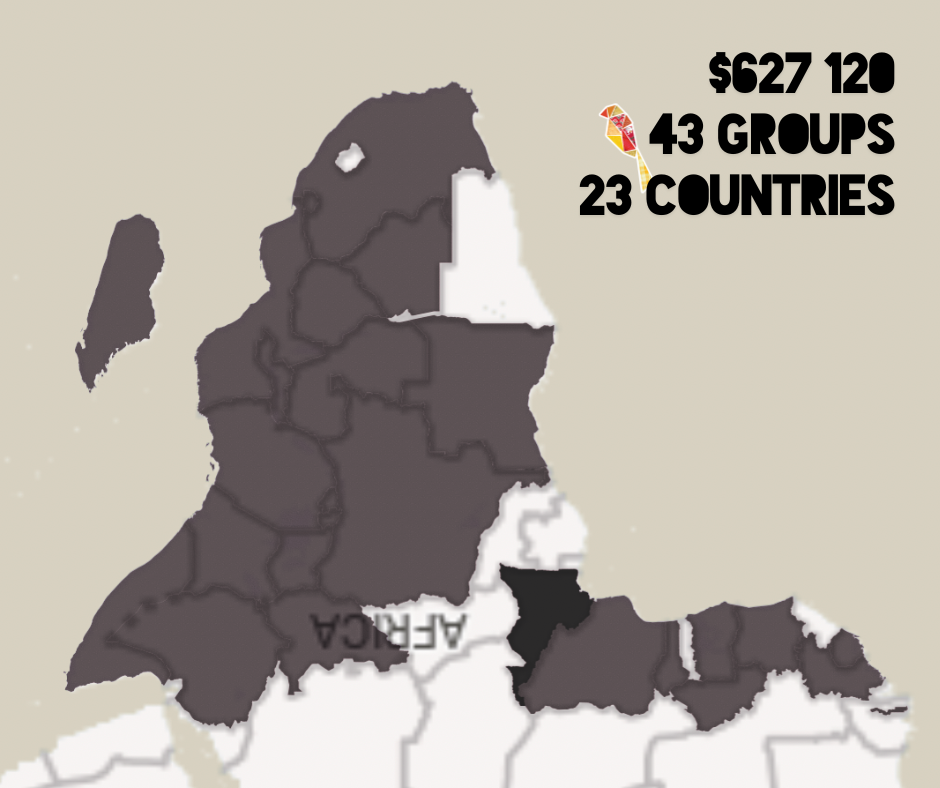Grantee Partners
FRIDA provides small, flexible, multiyear grants for initiatives led by girls, young women, queer, trans and intersex youth under 30 years of age. FRIDAs approach to grantmaking is rooted in a participatory framework where decision-making is shared with the communities FRIDA aims to support.
Don’t forget to subscribe to our newsletter or our social networks for latest updates on FRIDA’s grant cycle!
Direct Grantmaking support 2024
In 2024, FRIDA supported 203 grantee partners by providing both core grants and accompaniment support to young feminist groups across six geographical regions. FRIDA’s support beyond grantmaking not only contributes to the sustainability of each grantee partner in organic and holistic ways, but also supports them to stay connected with broader social movements. In 2025 FRIDA will welcome 24 new grantee partners

Spotlighting FRIDA’s Impact across regions
Central Eastern Europe, Caucasus and Central and North Asia (CEECCNA)
Among significant increases in legal restrictions, war and conflict, and crackdowns on civil society, which have all contributed to a more restrictive environment overall, FRIDA’s GPs continue to work on LGBTQI+ rights, Girls and, Youth Rights, Women’s Rights, Human Rights, Young activism and leadership, Sexual and gender-based violence (SGBV), Culture and Arts and Freedom of Opinion and Information
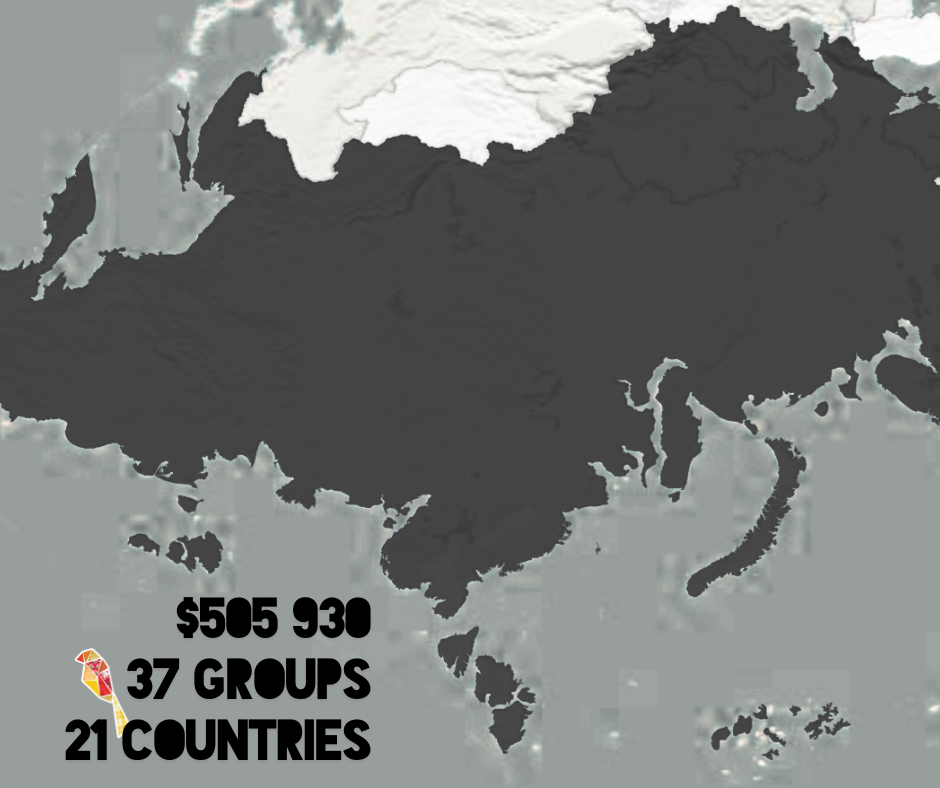
Latin America (LA)
Marked by a long history of feminist activism, Latin America has faced recent political, legal and social changes that have significantly shaped the feminist movement. Economic inequality, along with conservative social values and political instability, continues to hinder progress towards social and gender equality. FRIDA’s GPs in the region have strengthened their work across: Climate and Environmental Rights and Justice (CEJ), Sexual and Reproductive Health, Rights and Justice (SRHRJ), LGBTQIA+ rights & Trans rights, Abortion assistance and rights, Economic, social and cultural rights, Migration, Displacement and Trafficking in Persons
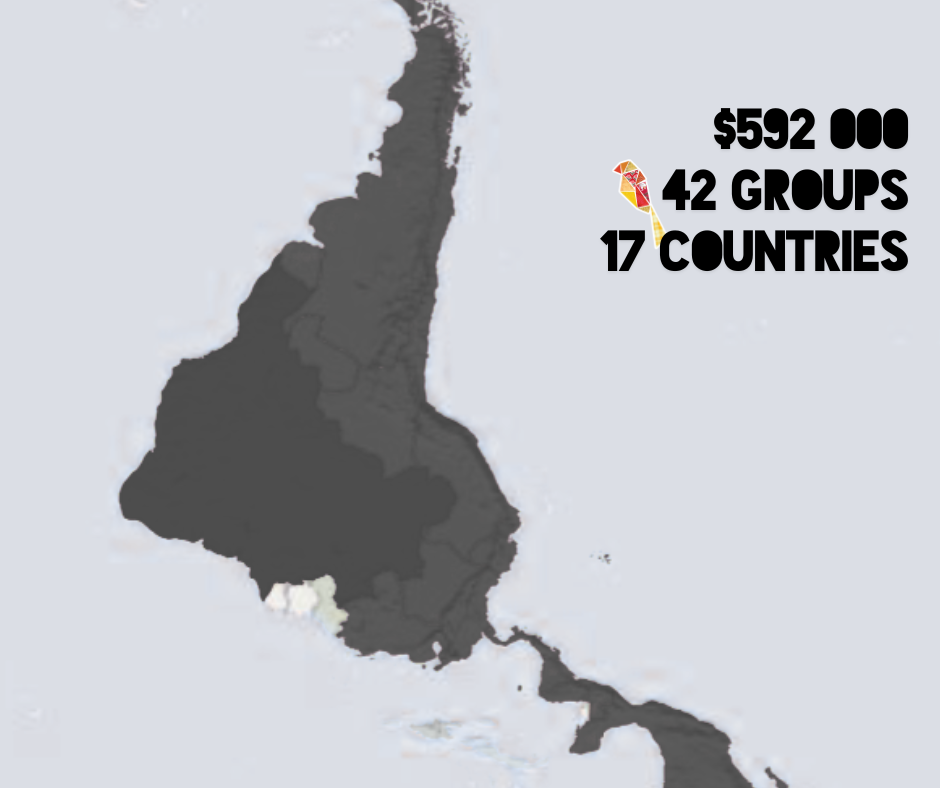
South, Southeast, East Asia and the Pacific (SSEAP)
The region finds itself amidst significant changes that have impacted civil society and feminist organizing. Apartheid, surveillance of foreign funding, rising authoritarianism and a shift toward right wing politics has led to oppression of marginalized groups and shrinking civil society spaces. This has significantly impacted the well being of activists and their ability to do long term, sustainable work. With support from FRIDA, young feminists in the region continue to address: LGBTIQAI+ rights , Women’s Rights, Young activism and leadership, Sexual and gender-based violence (SGBV), Economic empowerment and social rights
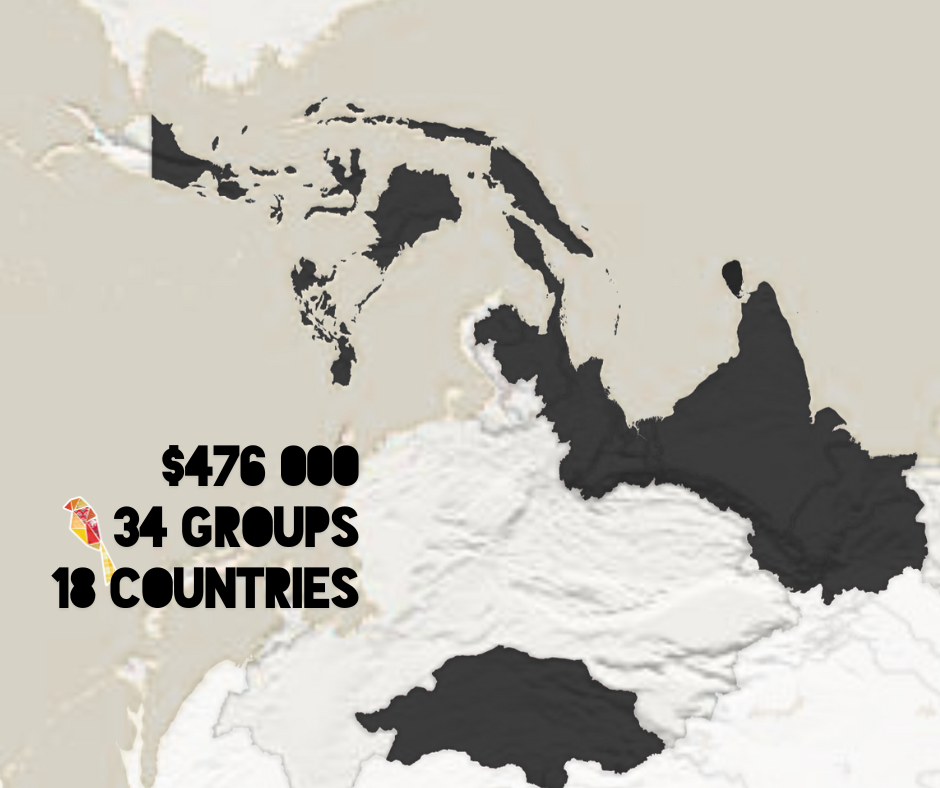
South, West Asia & North Africa (SWANA)
The war in Sudan and Lebanon and the genocide in Palestine, as well as the constant threat of military violence across the region have shifted the focus and priorities of the SWANA feminist movement. The work of feminist and social movements is in response to the repercussions of conflict, war and displacement, leading to an increase in young feminist organizations collaborating and mobilizing emergency aid and relief across the region. Within this challenging context, FRIDA’s GPs have relentlessly continued to work on: LGBTQAI+ rights, Youth activism and leadership
Sexual and gender-based violence (SGBV), Care and, Wellbeing, Girls and Youth Rights, Economic empowerment and social rights
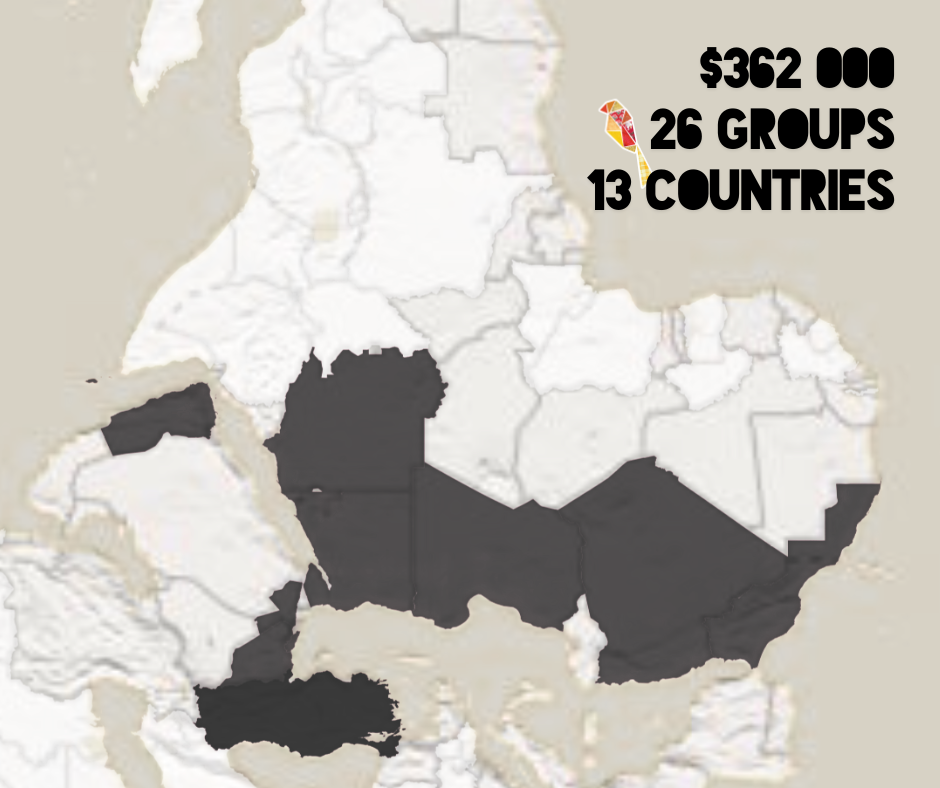
The Caribbean
Due to its geographical location and effects of global warming, the Caribbean is the second most disaster-prone region in the world. It is also one of the most under-resourced regions and in many cases is still considered to be a part of or often paired with Latin America which further prevents the region from receiving the support needed to build and sustain movements. Apart from funding, selectively conservative/religious bodies and colonial laws have a negative impact on the work of feminists. FRIDA’s GPs in the region focus their efforts on: Sexual and gender-based violence (SGBV), LGBTQIA+ rights & Trans rights, Sexual Reproductive Health and Rights and Justice (SRHRJ), Climate and Environmental Rights and Justice (CEJ)
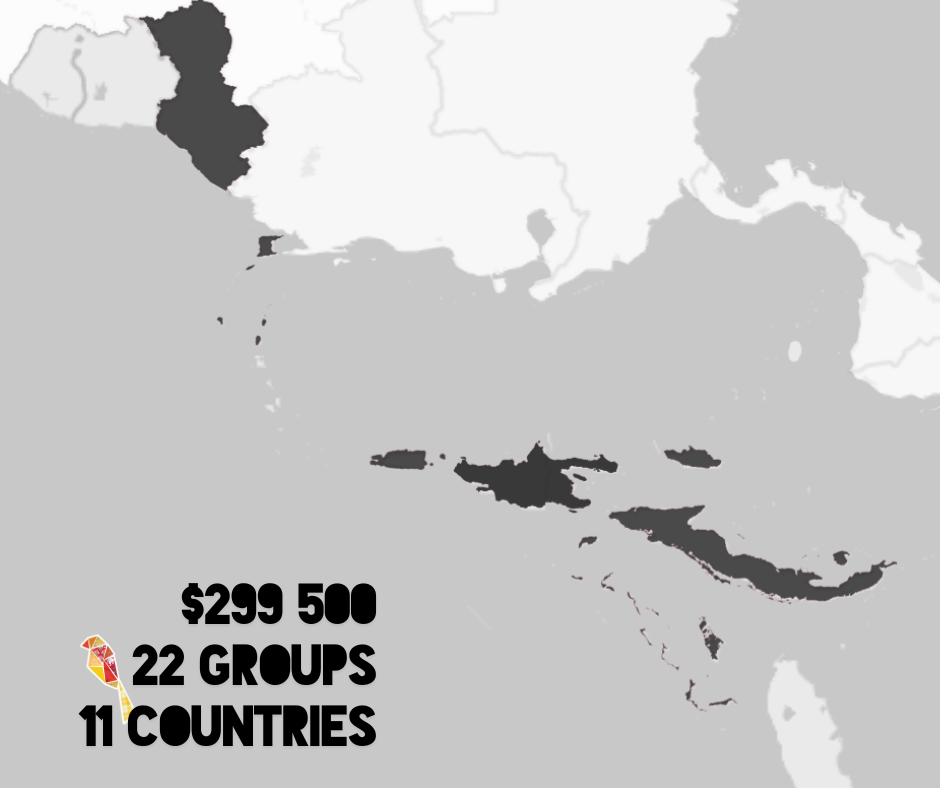
West, East, Southern and Central Africa (WESCA)
Young feminists in WESCA face political instability, growing instances of anti-rights legislation, restrictive laws, gender-based violence, and economic crises. Countries in the region (Somalia, Democratic Republic of Congo, South Sudan, Central African Republic, Mali, Ethiopia particularly the Tigray region, and Burkina Faso) are experiencing perennial conflicts and instability.
Through FRIDA’s funding support, GPs in the region are influencing change in the areas of: Economic empowerment and social rights, Sexual and gender-based violence (SGBV), LGBTQAI+ rights & Trans rights, Young activism and leadership
